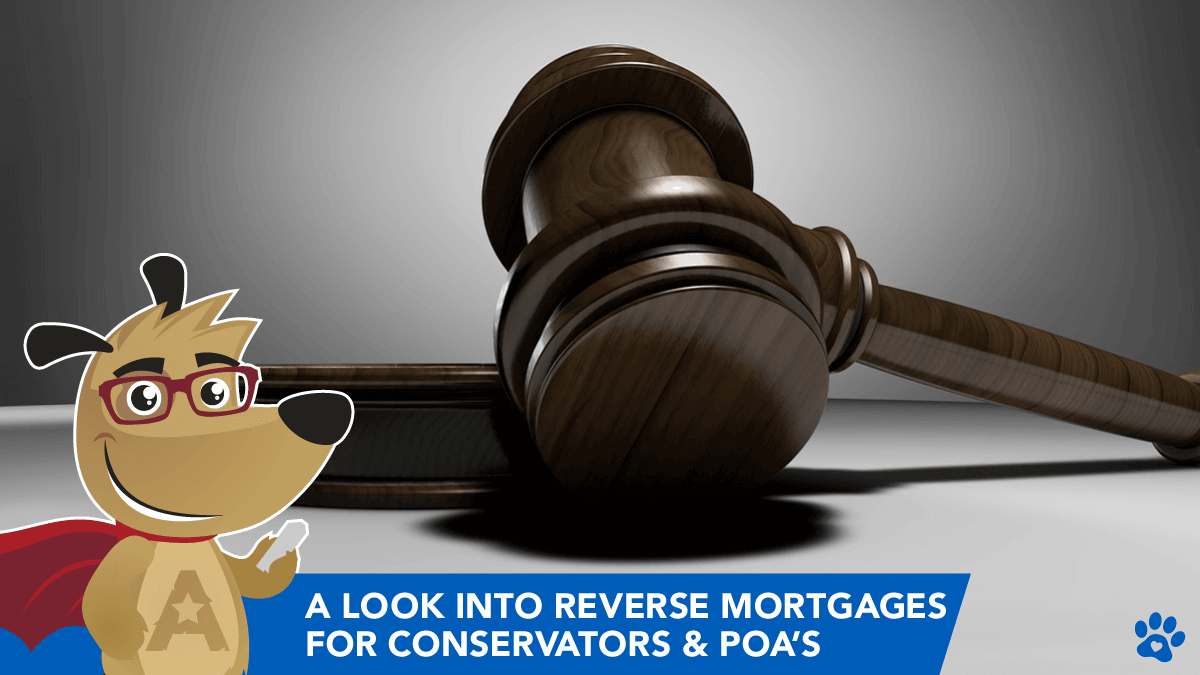
America's #1 Rated Reverse Mortgage Lender*
Resource for Conservators Seeking Reverse Mortgages
 |
Michael G. Branson, CEO of All Reverse Mortgage, Inc., and moderator of ARLO™, has 45 years of experience in mortgage banking, with the past 20 years devoted exclusively to reverse mortgages. A Forbes Real Estate Council member, he developed the industry's first fixed-rate jumbo reverse mortgage and has been featured in Forbes, Kiplinger, the LA Times, and Yahoo Finance. (License: NMLS# 14040) |
 |
Cliff Auerswald, President of All Reverse Mortgage, Inc., and co-creator of ARLO™ — the industry's first real-time reverse mortgage pricing engine — has 27 years of experience in mortgage banking, with 20+ years focused exclusively on reverse mortgages. A recognized expert in reverse mortgage technology and consumer education, he has been featured in Kiplinger, Yahoo Finance, Realtor.com, and HousingWire. (License: NMLS# 14041) |
Taking out a reverse mortgage on a property in conservatorship takes a few steps, but it can be done.
Conservatorships are established when a court deems a person incapable of making certain decisions and can encompass two categories: for a person or a person’s estate. Some conservatorships cover both aspects.
They are generally put into effect when someone petitions the court to be appointed a conservator of an individual (usually a relative) and that individual’s finances and estate, whom they deem incapable of making their own decisions.
For example, adult children sometimes petition the court to appoint them as their parents’ conservators if they feel their parents are no longer competent to make decisions about their well-being or finances.
Before granting the conservatorship, the court requires the petitioner to establish that the individual cannot manage his financial affairs or make decisions relating to other aspects of life.

How Can Conservators Get a Reverse Mortgage?
Conservators have exclusive control over the conservatee’s affairs. They must show that their actions are taken with the best interests of the person in conservatorship (sometimes called a ward) in mind.
If you’re a conservator and want to take out a reverse mortgage on your ward’s home, you’ll be required to get a probate court approval that will allow you to encumber the property with the loan.
From there, if the conservatee is deemed lacking in legal competency, you must complete counseling required of all would-be reverse mortgage borrowers (per the Federal Housing Administration’s rules for its Home Equity Conversion Mortgage (HECM) program) on behalf of your ward.
Even though you’ve already been court-appointed as someone’s conservator, the specific court approval for a reverse mortgage is necessary because lenders are required to prove a conservator’s authority to obligate a borrower with a loan.
Incompetent borrowers (i.e., individuals in conservatorships) cannot sign any mortgage documents, so the conservator must execute any necessary documents. If you’re the conservator, you would be responsible for filling out the reverse mortgage application and signing the documents.
As part of the reverse mortgage loan application process, conservators must meet with the lender face-to-face unless the property is 50 miles from the nearest office. For those outside of a 50-mile radius, a telephone interview is permitted.
Conservatorships vs. Power of Attorney
A conservatorship and a power of attorney are similar in that both authorize a person to control someone else’s financial affairs, including providing management of money and other properties. This encompasses the ability of powers of attorney to take out a reverse mortgage on behalf of someone else.
However, unlike conservators, those with financial powers of attorney are not required to be court-appointed. Instead, a power of attorney is generally designated by someone who is still legally sufficiently competent and has the money to make such an appointment.
Conservators have exclusive power over their wards’ affairs, but this is not the case for financial powers of attorney, where the person whose estate is in question still has decision-making rights.
As with conservatorships, though, those with power of attorney must be able to provide ample proof and documentation that the person they’re acting on behalf of is indeed incapacitated.
For example, a title company needs documentation in the form of a doctor’s letter if a power of attorney is seeking a reverse mortgage on a home and someone on the property’s title is incapacitated.
Getting a reverse mortgage as a conservator is somewhat different than for a legally competent borrower. If you have any other questions about how to do this, we’d be happy to help.
Questions About Conservatorships and Reverse Mortgages? Whether you need probate court guidance, help with HUD documentation, or just want to understand your options, we can help. Call All Reverse Mortgage, Inc. (ARLO™) Toll-Free at (800) 565-1722 or get a free consultation.
ARLO recommends these helpful resources:

Have a Question About Reverse Mortgages?
Over 2000 of your questions answered by ARLO™
Ask your question now!

 Michael G. Branson
Michael G. Branson Cliff Auerswald
Cliff Auerswald

February 22nd, 2022
February 22nd, 2022
July 2nd, 2021
July 10th, 2021
October 23rd, 2019
October 23rd, 2019
August 15th, 2015
August 17th, 2015